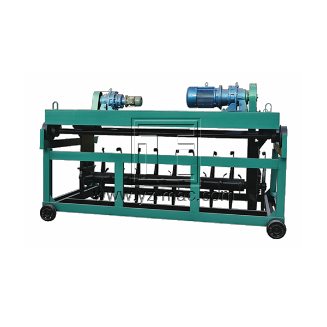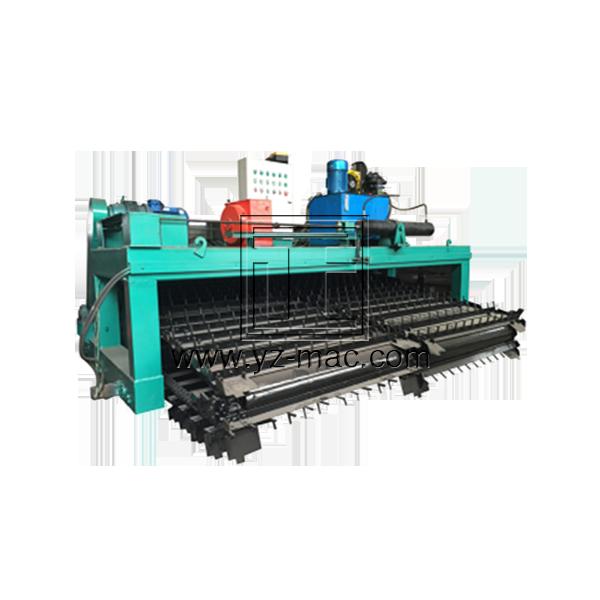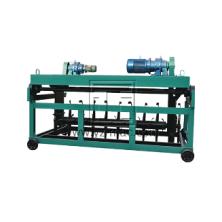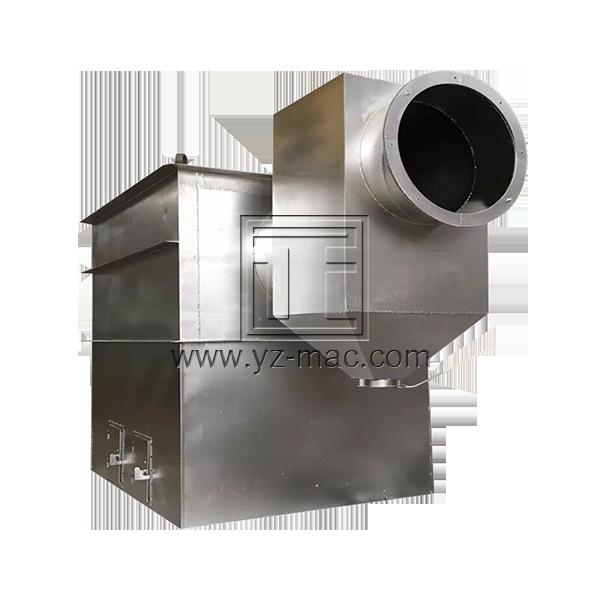Vermicomposting machine
Vermicomposting, also known as worm composting, is an environmentally friendly method of recycling organic waste using specialized equipment called a vermicomposting machine. This innovative machine harnesses the power of earthworms to transform organic waste into nutrient-rich compost.
Benefits of Vermicomposting:
Nutrient-rich Compost Production: Vermicomposting produces high-quality compost rich in essential nutrients. The digestive process of earthworms breaks down organic waste materials into a concentrated, nutrient-dense form, making the compost highly beneficial for soil enrichment and plant growth.
Waste Diversion and Reduction: Vermicomposting offers an effective solution for diverting organic waste from landfills. By recycling organic waste through vermicomposting, we can significantly reduce the amount of waste sent to landfill, contributing to waste reduction and mitigating environmental pollution.
Improved Soil Health: The vermicompost produced by a vermicomposting machine enhances soil fertility and structure. It improves soil water-holding capacity, nutrient availability, and microbial activity, resulting in healthier and more productive soils.
Sustainable Agriculture and Gardening: Vermicompost is widely used in organic agriculture and gardening. Its rich nutrient content provides essential elements for plant growth, reduces the need for synthetic fertilizers, improves soil health, and promotes sustainable farming practices.
Working Principle of a Vermicomposting Machine:
A vermicomposting machine creates an ideal environment for earthworms to thrive and efficiently decompose organic waste. The machine typically consists of stacked trays or compartments filled with bedding material, such as shredded paper or coconut coir, and a population of composting worms, typically red wigglers (Eisenia fetida) or tiger worms (Eisenia andrei). The worms feed on the organic waste, breaking it down into smaller particles while simultaneously leaving behind nutrient-rich castings. As the worms move upward through the trays, the composting process continues, resulting in the production of vermicompost.
Applications of Vermicomposting Machines:
Household and Community-level Composting: Vermicomposting machines are suitable for households, schools, community centers, and small-scale composting initiatives. They provide a compact and odor-free composting solution for recycling kitchen scraps, food waste, and small amounts of garden waste.
Commercial Composting Facilities: Vermicomposting machines can be scaled up for use in larger commercial composting facilities. They offer a viable option for processing organic waste generated by restaurants, hotels, supermarkets, and other food-related businesses, providing a sustainable waste management solution.
Urban Agriculture and Rooftop Gardening: Vermicompost produced by vermicomposting machines is highly beneficial for urban agriculture and rooftop gardening projects. It enables the cultivation of nutrient-rich vegetables, herbs, and flowers in limited space, promoting greener and more sustainable urban environments.
Educational Institutions and Research Facilities: Vermicomposting machines are commonly used in schools, universities, and research facilities to educate students and conduct studies on the benefits of vermicomposting. They provide hands-on learning experiences and serve as valuable research tools for exploring sustainable waste management practices.
Vermicomposting machines are an effective and sustainable solution for organic waste management. By harnessing the power of earthworms, these machines convert organic waste into nutrient-rich vermicompost, contributing to soil fertility, waste diversion, and sustainable agriculture. Whether used at the household level or in larger commercial settings, vermicomposting machines offer numerous benefits, including nutrient-rich compost production, waste reduction, improved soil health, and applications in various sectors.








